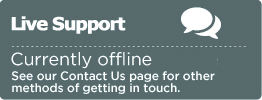Decongestants
About decongestants
Decongestants are a type of medicine that can provide short-term relief for a blocked or stuffy nose (nasal congestion).
They work by reducing the swelling of the blood vessels in your nose. This helps to open up the airways.
Most decongestants can be bought over the counter from pharmacies without a prescription.
When decongestants are used
Decongestants can help ease the symptoms of the following conditions:
Accessing medicines self-help guide
Visit our self-help guide on accessing medicines if you have difficulty getting the medicines you need.
Types of decongestants
Decongestants are available as:
- nasal sprays
- tablets or capsules
- liquids or syrups
- flavoured powders to dissolve in hot water
All in one remedies
Some products only contain decongestant medication. However, many are sold as “all in one” remedies. These contain extra painkillers and/or antihistamines. This means it could be dangerous to take additional separate doses of these medicines at the same time.
Who can take decongestants?
Most people can use decongestants safely, but they’re not suitable for everyone.
You should seek advice from you GP or pharmacist before starting a decongestant course if you have any of the following conditions:
- diabetes
- high blood pressure
- an overactive thyroid gland (hyperthyroidism)
- an enlarged prostate
- glaucoma (increased pressure in the eye)
- liver problems
- kidney problems
- a heart condition
- circulation problems
Tell your healthcare professional if you’re pregnant or breastfeeding, so that they can advise if a decongestant is suitable for you.
Decongestants shouldn’t be given to children under 6 years old. It’s recommended that children aged 6 to 12 should take decongestants for no longer than 5 days.
How to use decongestants
Check the patient information leaflet that comes with your medicine for advice about how much to take and how often to take it. If you’re unsure, ask a pharmacist for advice.
Decongestant nasal sprays shouldn’t be used for more than a week at a time because using them for too long can make your stuffiness worse.
Speak to your GP if your symptoms fail to improve after this time.
Side effects of decongestants
Decongestant medicines don’t usually have side effects. If you do experience any side effects, these will usually be mild.
Possible side effects of decongestant medicines can include:
- irritation of the lining of your nose
- headaches
- feeling or being sick
- a dry mouth
- feeling restless or agitated
- a rash
- uncontrollable shaking (tremor)
- problems sleeping (insomnia)
- a rapid and/or irregular heartbeat (arrhythmia)
- noticeable heartbeats (palpitations)
- in men, difficulty passing urine
These side effects should pass after you stop taking the medication.
More serious side effects can also occur, like hallucinations and severe allergic reactions (anaphylaxis), but these are very rare.
Interactions with other medications
If you want to check that your medicines are safe to take with decongestants, ask your pharmacist or GP.
Decongestants can increase or decrease the effect of some other medications.
Last updated:
10 February 2023

